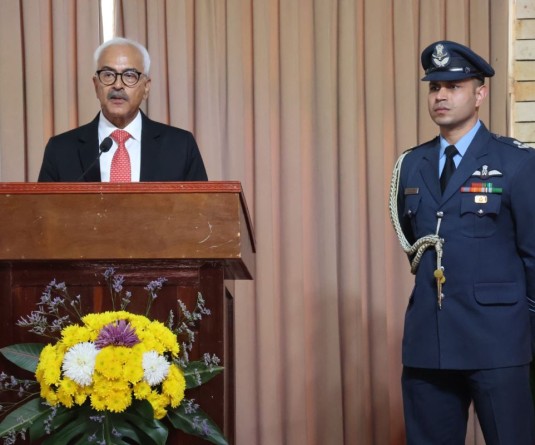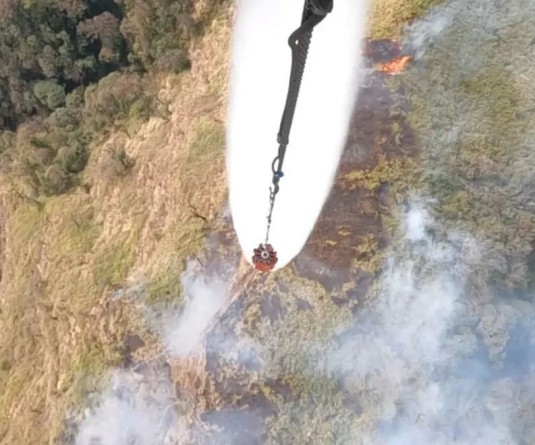
Dimapur, February 3 (MExN): The Naga Hoho (NH) today stated that it was high time for Nagaland’s economy to receive a “boost” through the exploration and production (E&P) of petroleum, oil, and natural gas as economically viable resources.
To this end, a clear roadmap should be prepared for the early resumption of oil exploration in the state, asserted the NH in a press release via its Media Cell.
Regarding the ongoing discussion between the Governments of Assam and Nagaland for oil exploration and sharing of royalties in the Disturbed Area Belt (DAB), the NH insisted that any oil exploration undertaken in the disputed border areas should incorporate models from both governments.
The “Oil Exploration & Production” license should be signed by both state governments, and until such time, the Naga Hoho demands that all oil activities within the DAB be stopped immediately, it added.
On the negotiation of oil royalties, the NH stated that the opinion of all Nagas should be taken into account.
Meanwhile, the NH highlighted that Nagaland is part of the Assam Arakan Basin, which has established hydrocarbon occurrences, and therefore holds potential for extensive and intensive exploration.
Nagaland has attracted the attention of petroleum explorers since the pre-Partition days, and the prospects of hydrocarbons being found throughout the Naga Hills are high, it maintained.
Hence, the NH urged the Naga people to consider the benefits and potential impact on the local economy if fossil fuel deposits were found in Nagaland.
It also pointed out that many technological improvements would eventually replace non-renewable energy and questioned whether Nagaland was willing to be left behind.
Referring to Article 371A, the NH asserted that the state has exclusive rights over its land and resources and urged the Nagaland Government to “strengthen and reiterate” the Nagaland Petroleum and Natural Gas Regulations, 2012, which outlines the rules for exploration of petroleum and natural gas in all oil-bearing areas in the state.
However, it also maintained that the issue of land and resource ownership remains contested.
Meanwhile, the NH alleged that since the closure of oil extraction in 1994, no NGOs, CSOs, or the government have taken up any remedial measures to contain the oil spills, which pose environmental hazards.
Affirming its advocacy, the NH also underscored that the state of Nagaland has incurred significant financial losses by not utilising its natural oil resources to date, and maintained that these potential revenues could have had a substantial impact on the state’s economic development.
This could have improved the quality of life and funded numerous infrastructural developments, factories, healthcare, education, and sports initiatives, ultimately transforming the state and generating employment opportunities, it added.
Based on past experiences, the NH underlined the importance of harnessing Nagaland’s rich natural resources for the benefit of the state and its people, very prudently.
Further, the NH stressed that unresolved issues have deprived Nagaland of significant monetary benefits and called on all Nagas to work together to build a future where every citizen of Nagaland enjoys the benefits of economic vision and concerted efforts for the common good.
Accordingly, on behalf of the Naga people, the NH urged the state government to start oil and natural gas exploration in consultation with the concerned stakeholders to achieve the economic independence of the Nagas.





